Families of Forsyth County
Atlanta History Center is uncovering and sharing the histories of the descendants of Forsyth County’s Black residents who were expelled in 1912.
As part of an initiative to continue research and bring awareness to the events of 1912, we aim to provide resources for descendants to explore and tell their family histories as conversations continue in Forsyth County and across the country on how to reconcile with the past.
The podcast 1912: The Forsyth County Expulsion and Its Aftermath tells the stories of four Black families from Forsyth County and the lasting impact of racial terror on generations of descendants.
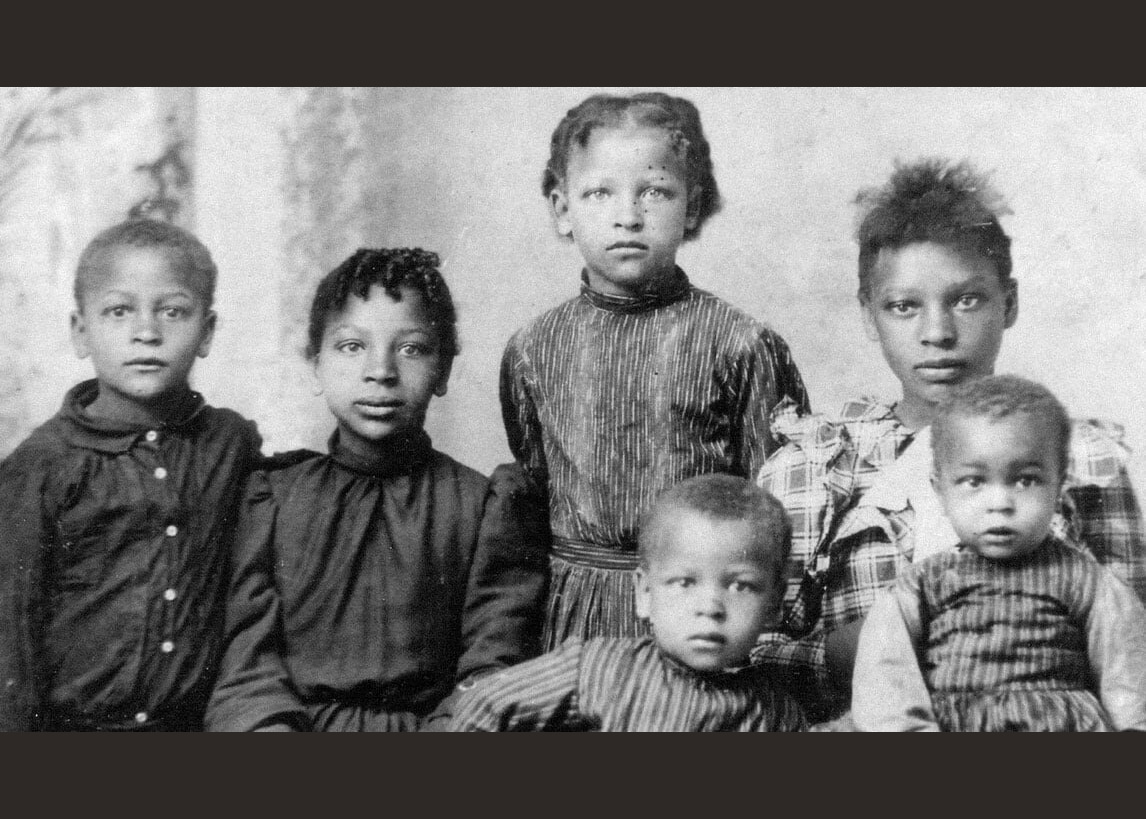
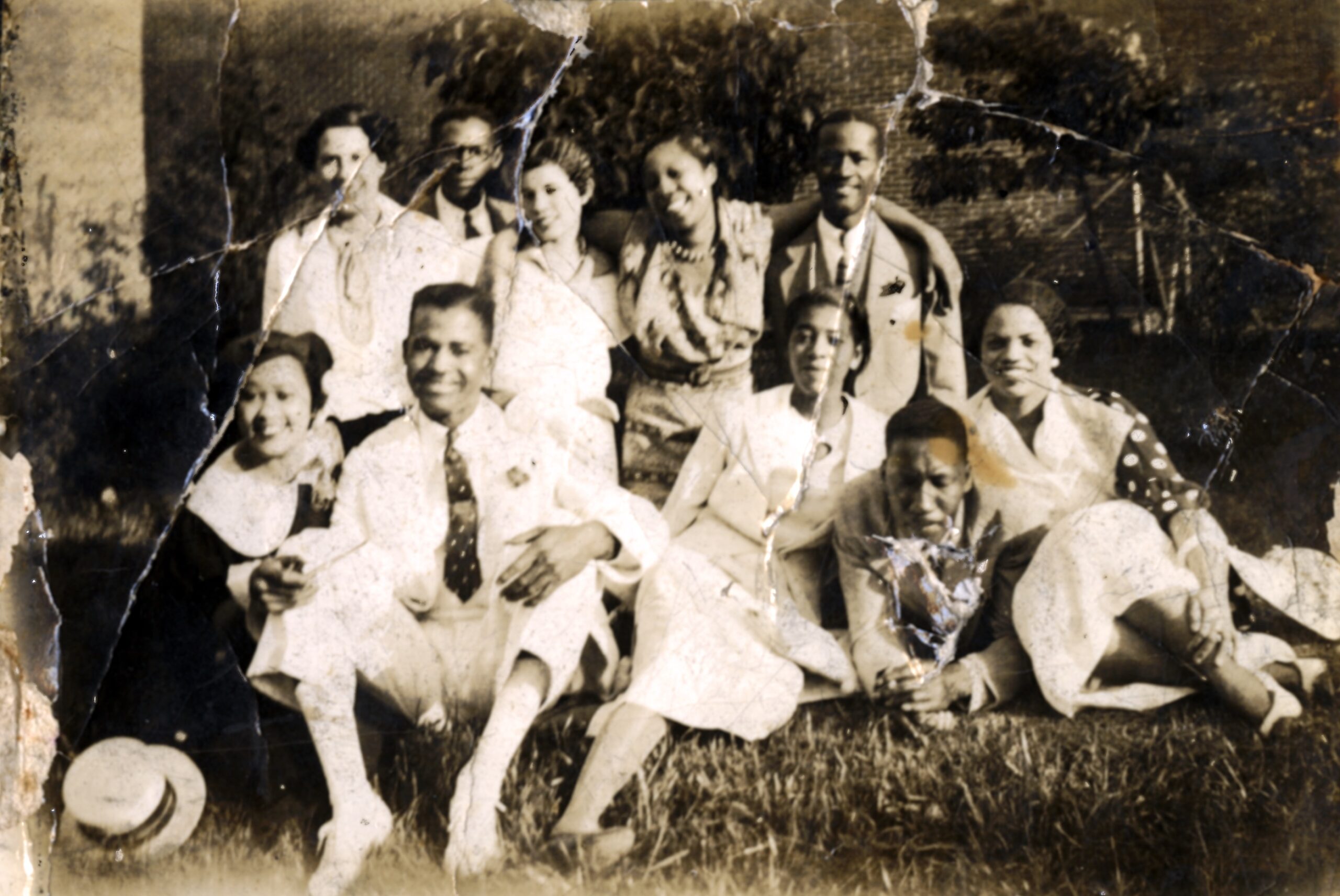
The Bagley Family
Listen to Elon Osby, granddaughter of William Bagley
Transcript:
Elon Osby: My mother was Willie Mae Bagley and she was the daughter of William Bagley. William Bagley grew up in Forsyth County. He married Ida Julian and they owned 60 acres of land.
60 acres, that’s a lot of land for a Black man to have in that time.
Having to leave and being forced out of Forsyth County was not something they talked about. And it’s an unbelievable story for people to be uprooted, their land taken, everything taken and they survive and they persevere and they came to what is now the heart of Buckhead, to Macedonia Park which became known as Bagley Park after my grandfather and they thrived here. Until they were run out again.
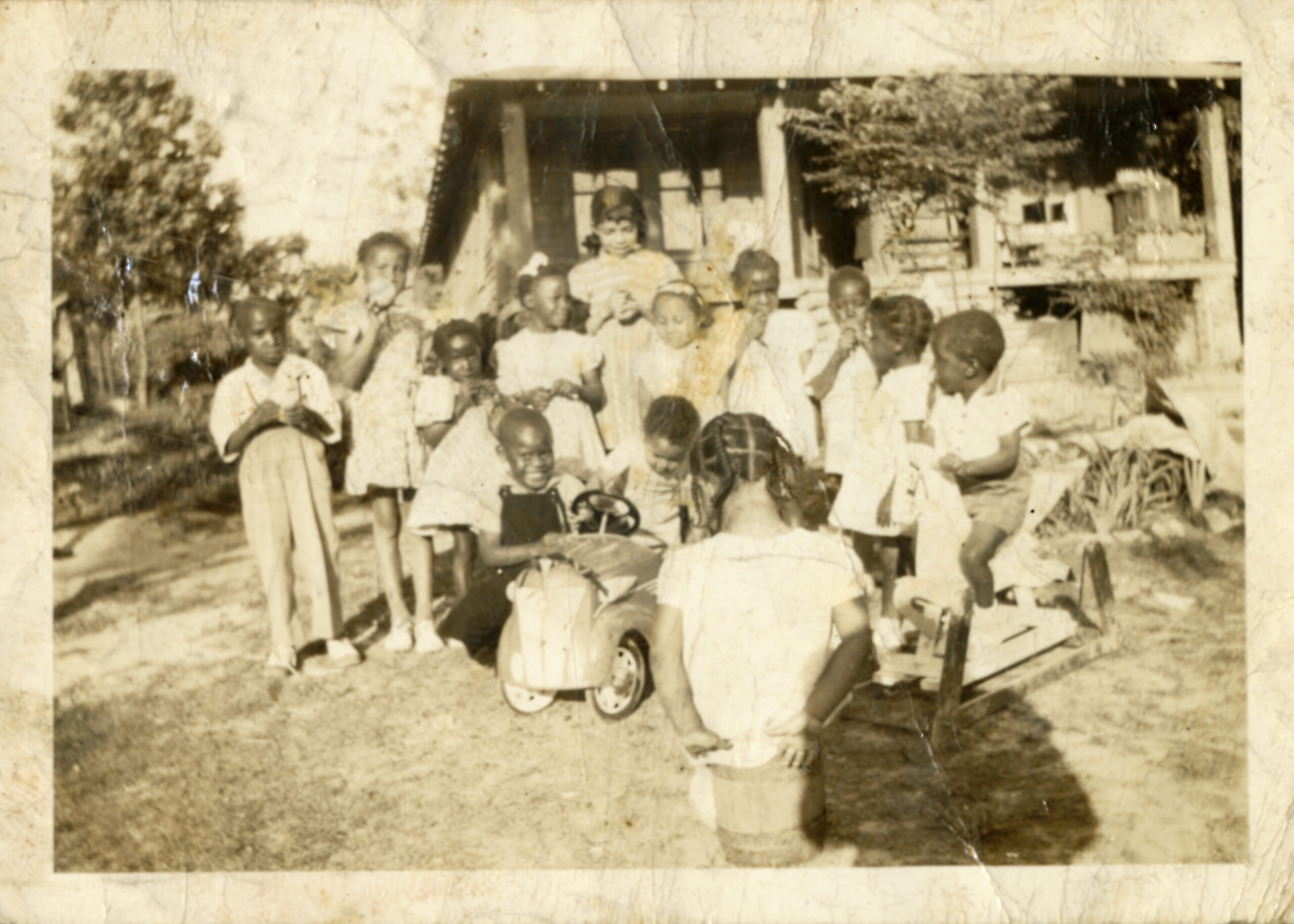
A group of children gather in front of William Bagley’s home, Bagley Street, circa 1940. Courtesy of Elon Butts Osby
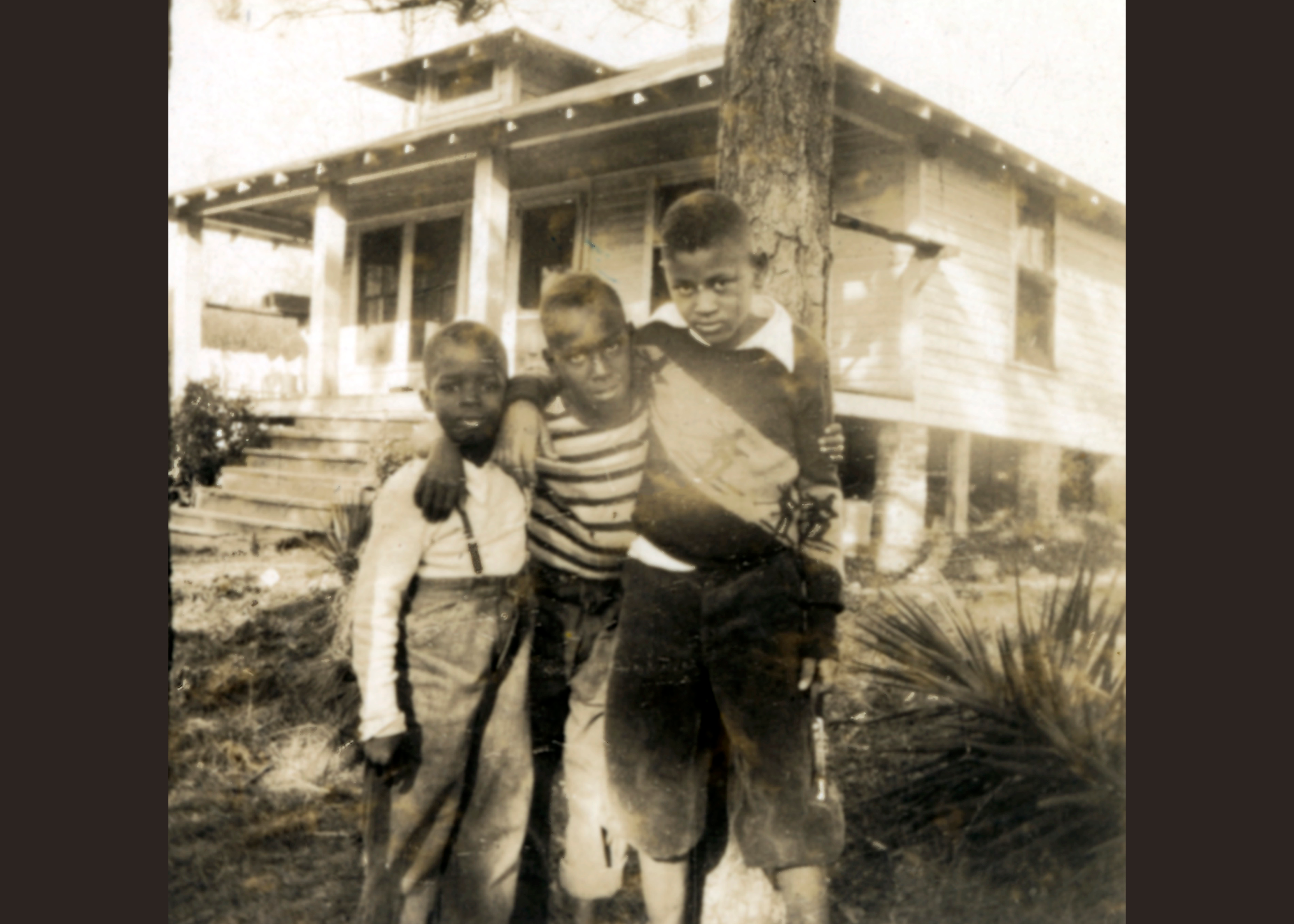
Unidentified children in front of William and Ida Bagley’s home in Bagley Park, circa 1940. Courtesy of Elon Butts Osby
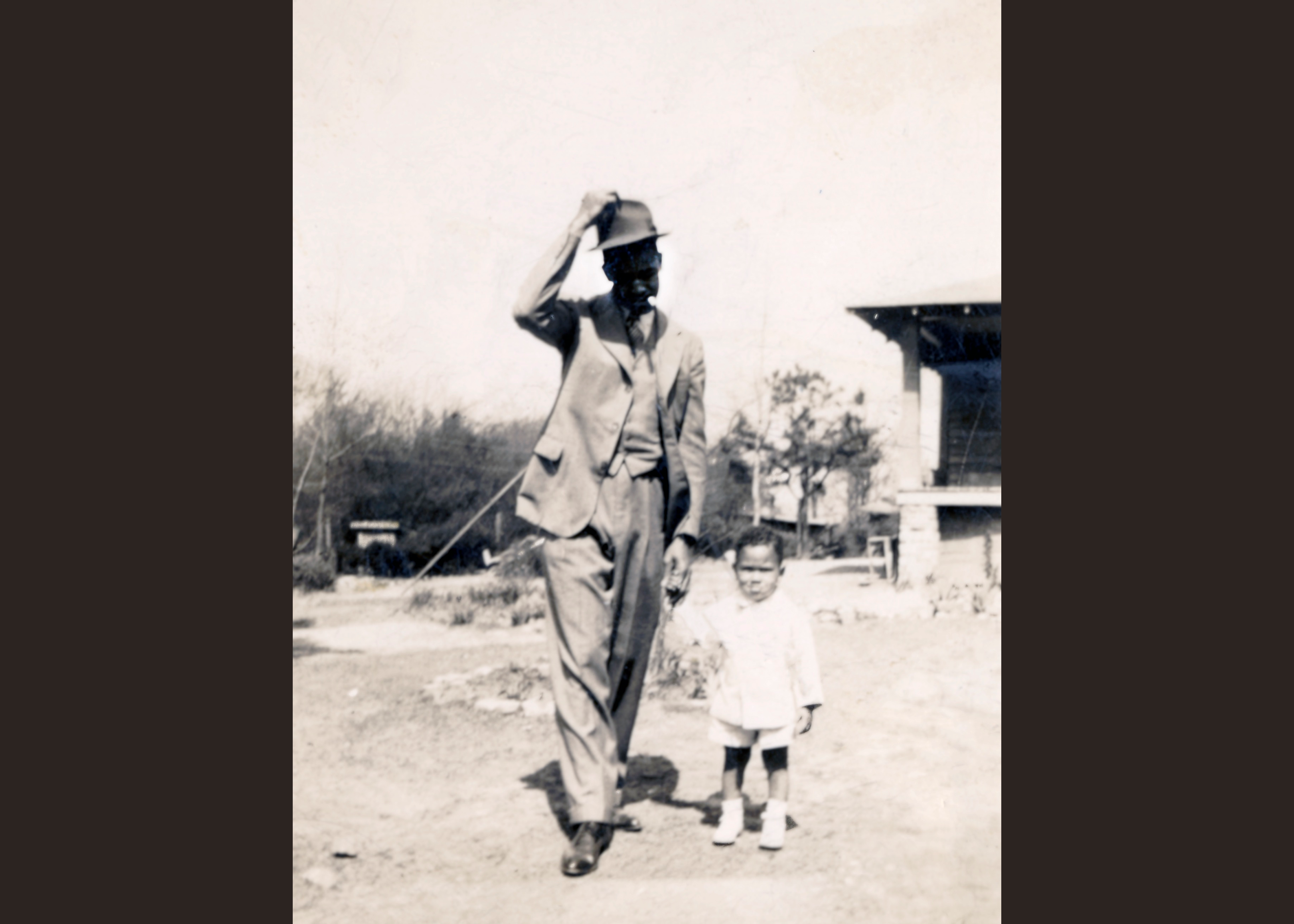
William Howell Butts, grandson of William Bagley, with his father, Pete Butts. William Howell Butts grew up in Bagley Park and was close with his grandparents, William and Ida. The picture is dated as 1939 with William’s writing “Me & daddy Butts.” Courtesy of Elon Butts Osby
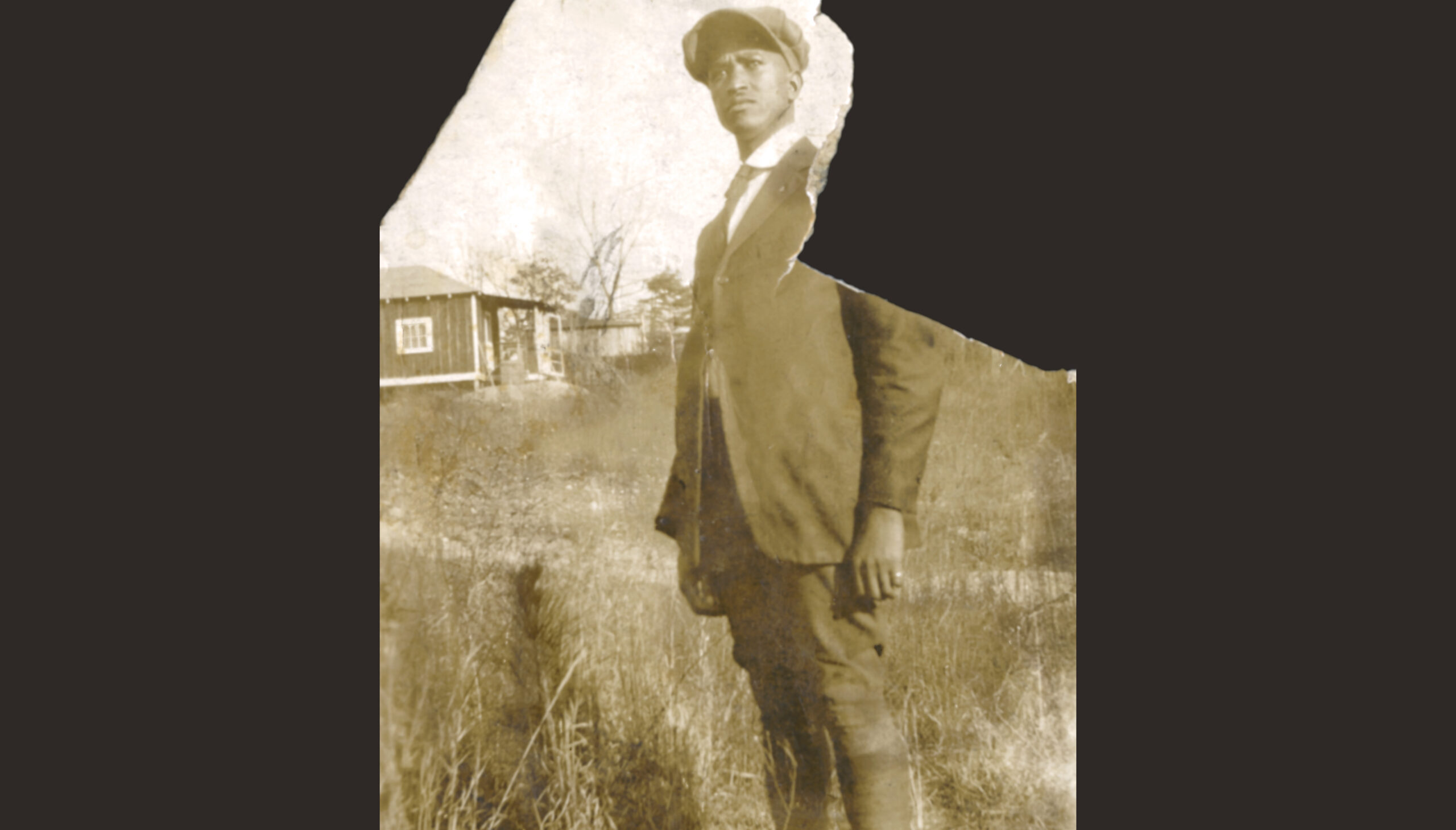
Family tradition believes this to be William Bagley at a young age. The location is not known to be either Forsyth County or Macedonia Park. Courtesy of Elon Butts Osby
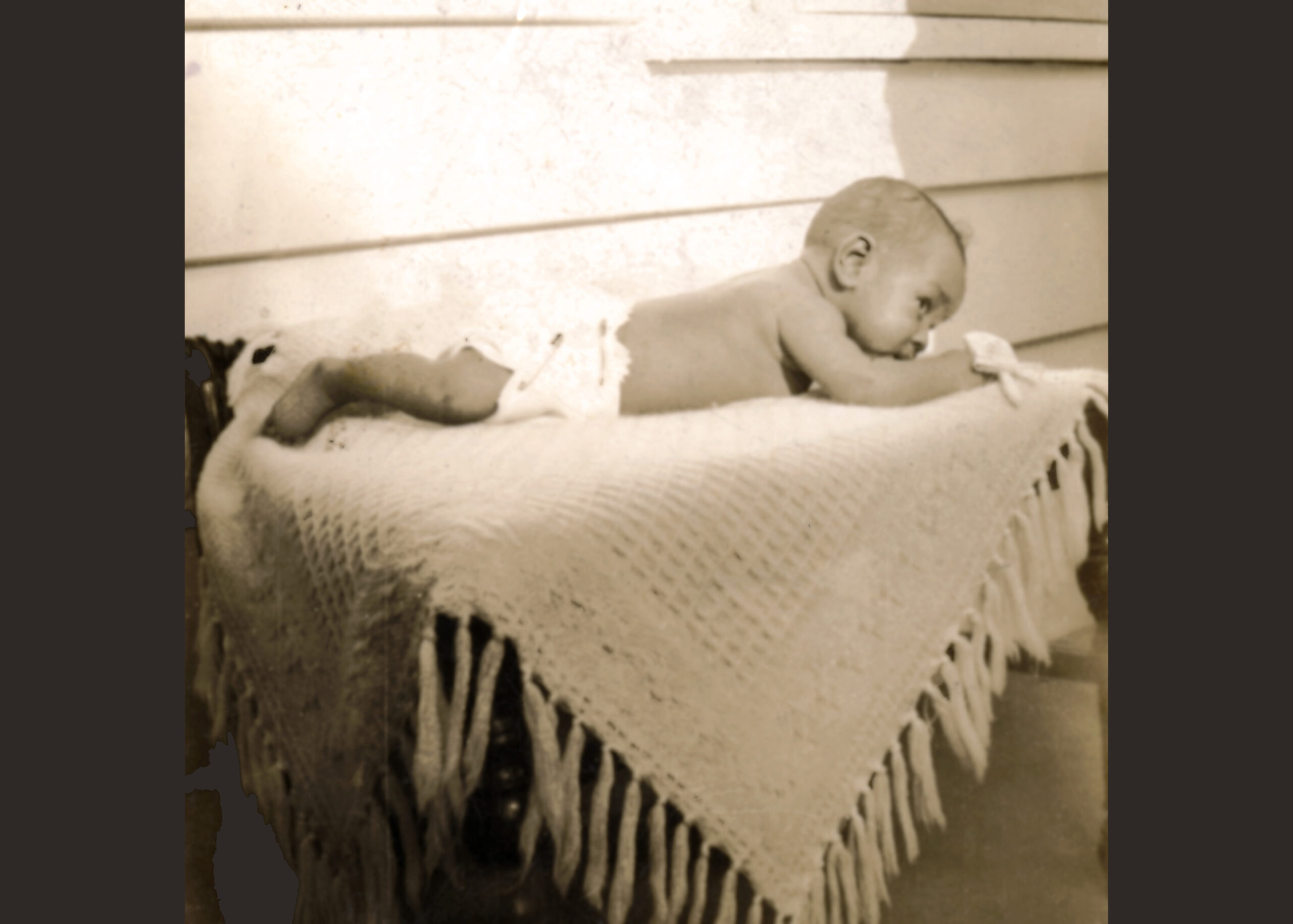
William Howell Butts, the grandson of William Bagley and son of Willie Mae and Pete Butts in Bagley Park, 1939. Courtesy of Elon Butts Osby
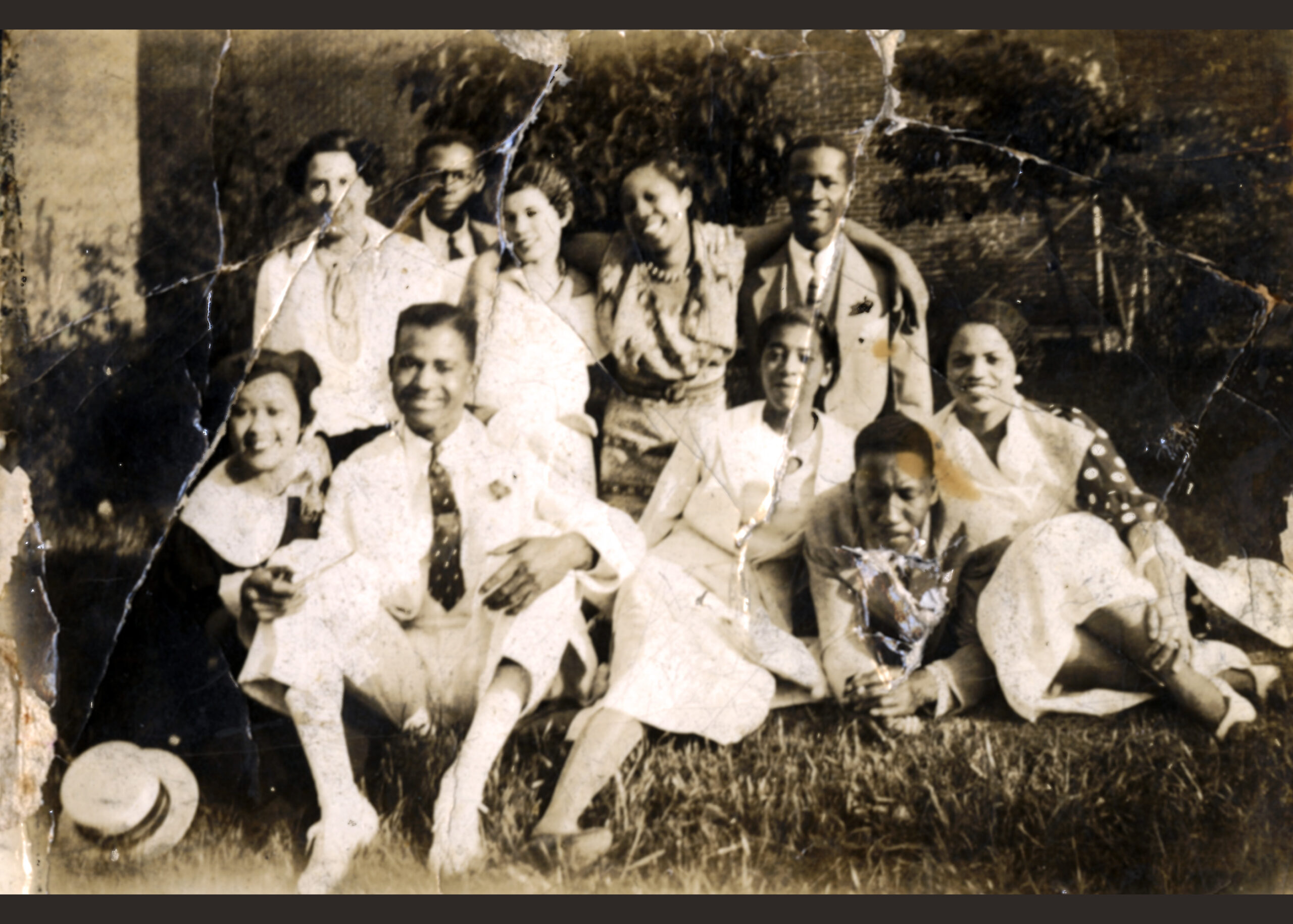
Willie Mae (first row, far left) and Pete Butts (first row, second from left) with friends in Atlanta, Georgia, circa 1940. The pair often went out with other couples to social events including at the Royal Peacock. Courtesy of Elon Butts Osby
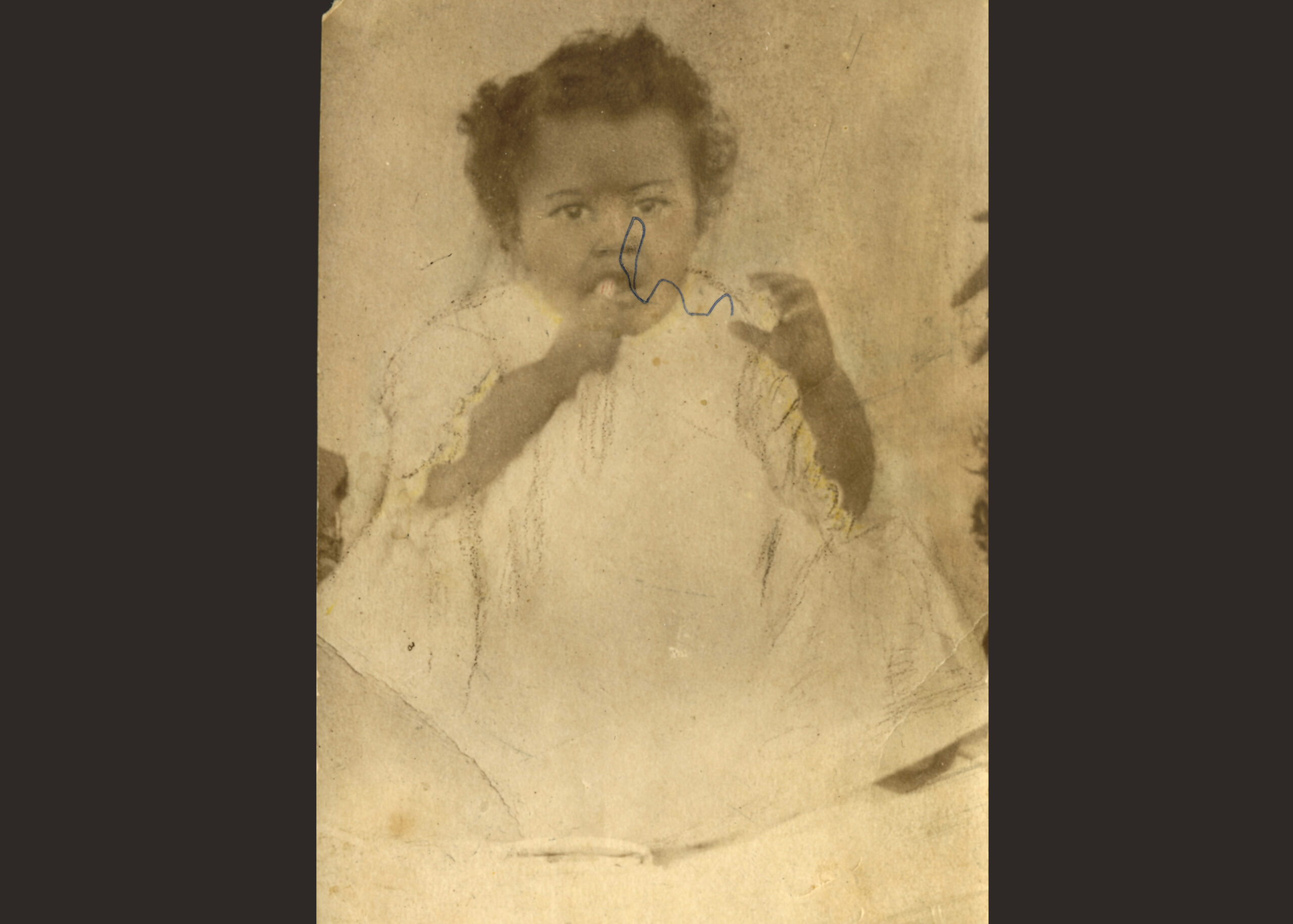
Willie Mae Bagley as an infant, likely taken while the Bagley family was still living in Forsyth County, circa 1912. Courtesy of Elon Butts Osby
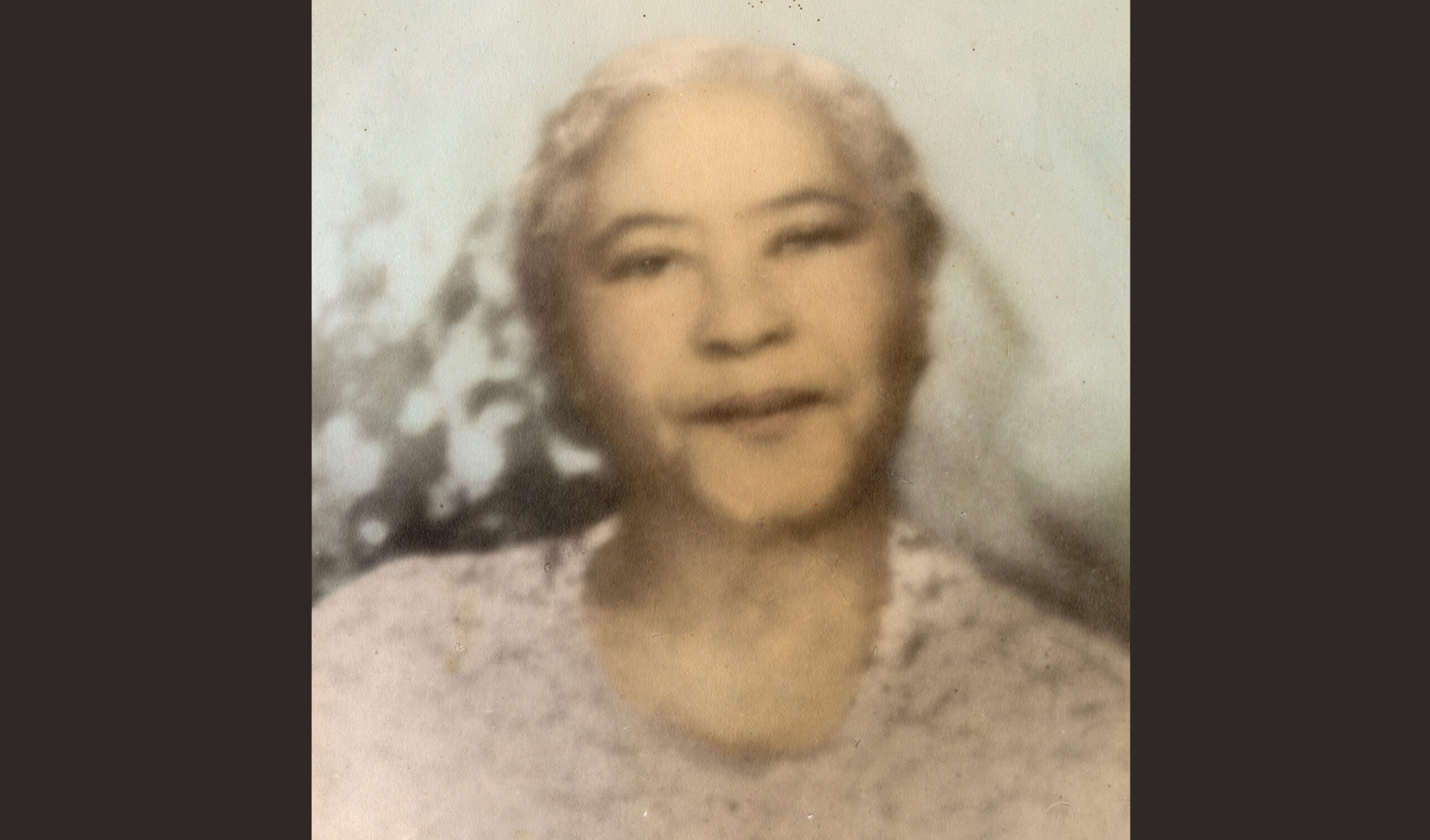
Ida Bagley, wife of William Bagley. Courtesy of Elon Butts Osby
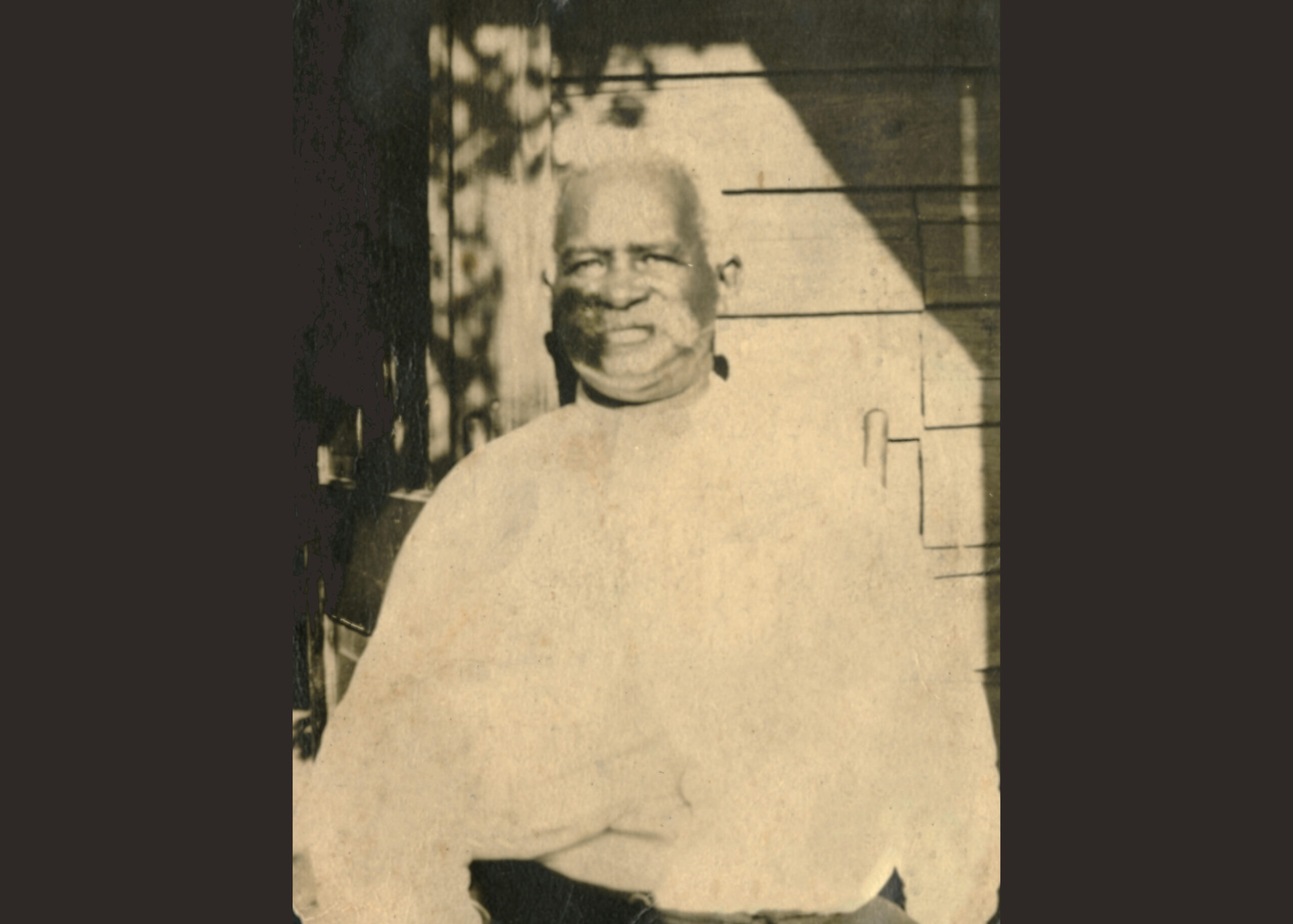
William Bagley, husband of Ida Bagley and unofficial mayor of Bagley Park. Courtesy of Elon Butts Osby
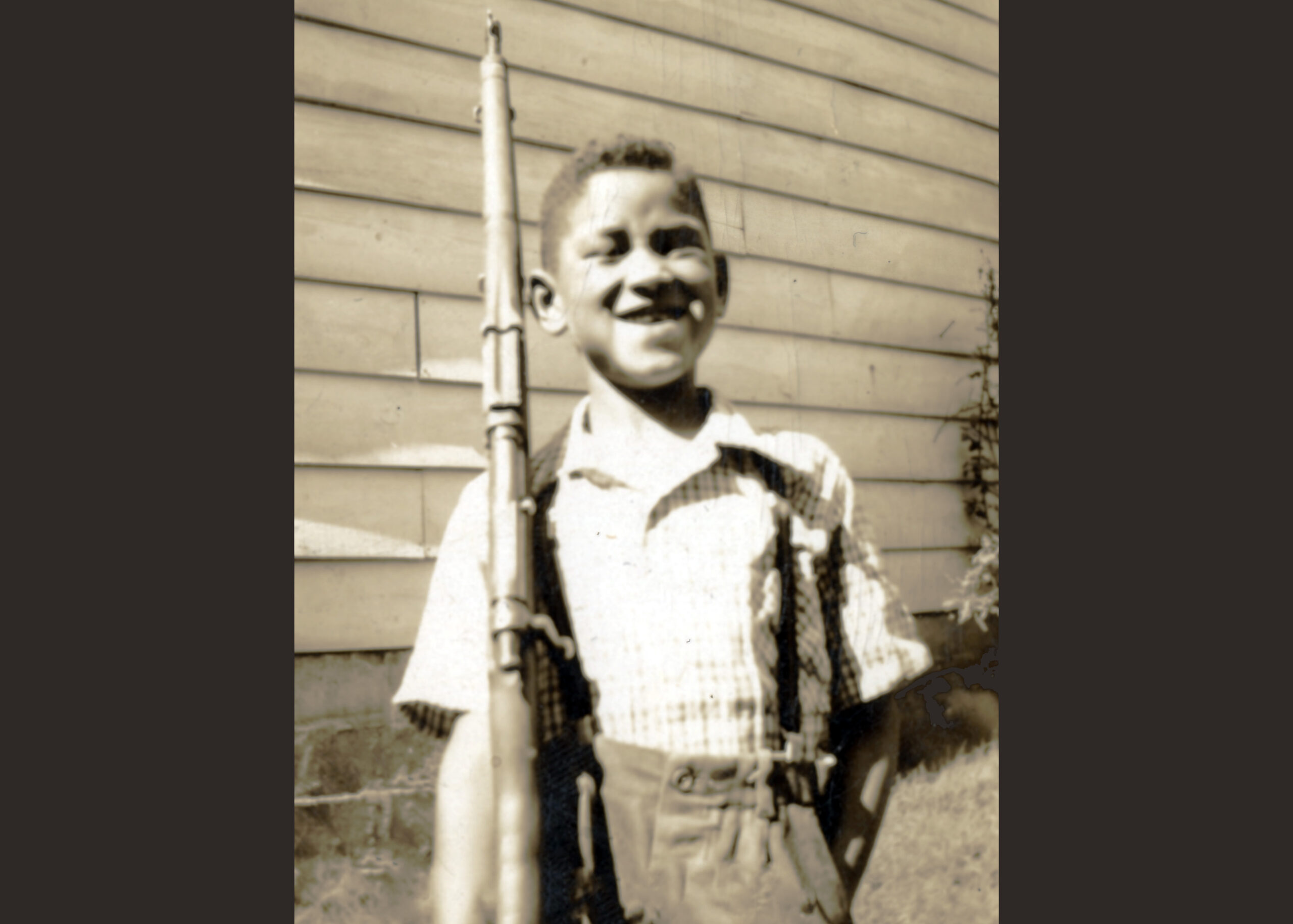
William Howell Butts in Bagley Park, circa 1945. Courtesy of Elon Butts Osby
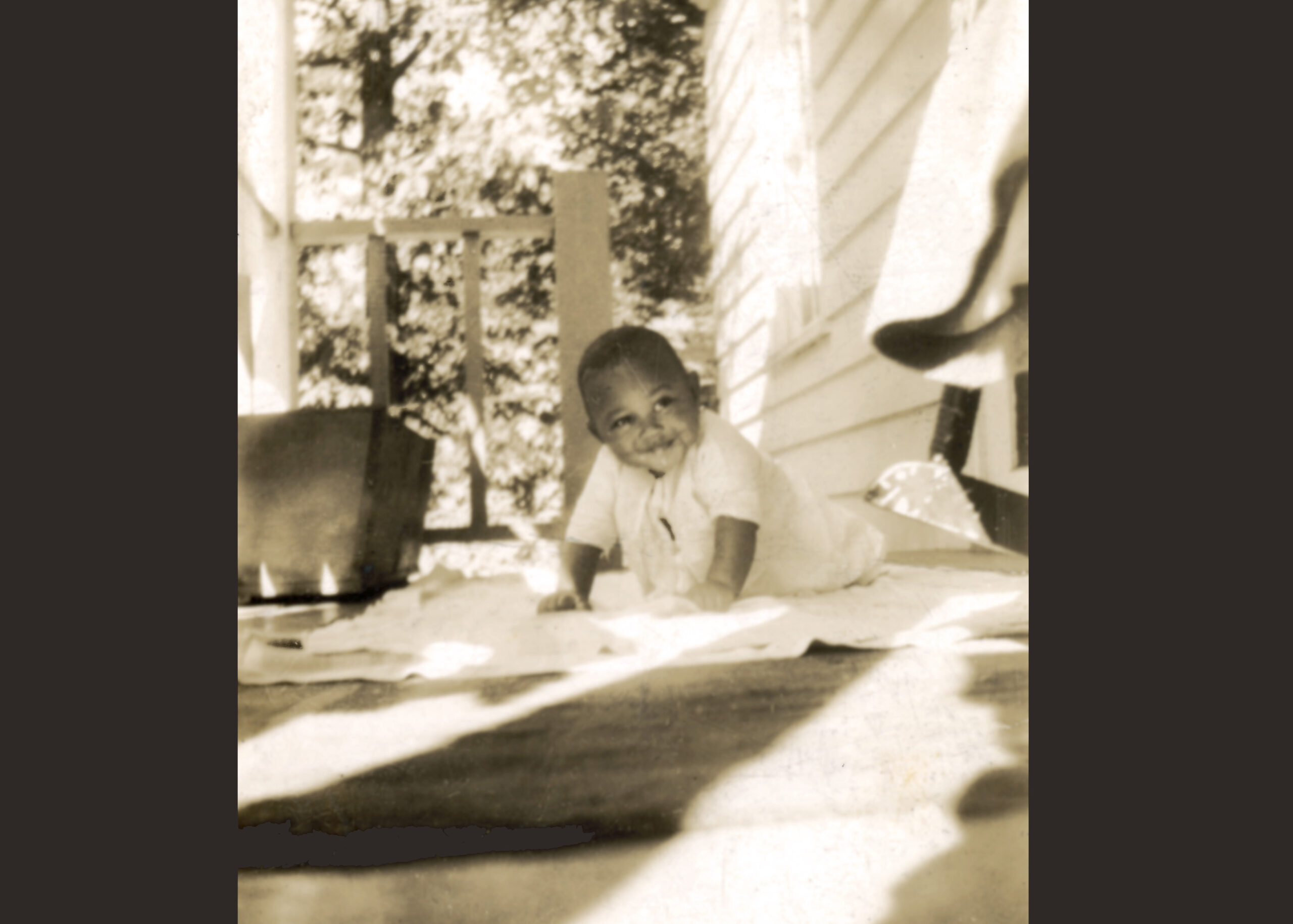
William Howell Butts, the grandson of William Bagley and son of Willie Mae and Pete Butts in Bagley Park, 1940. Courtesy of Elon Butts Osby
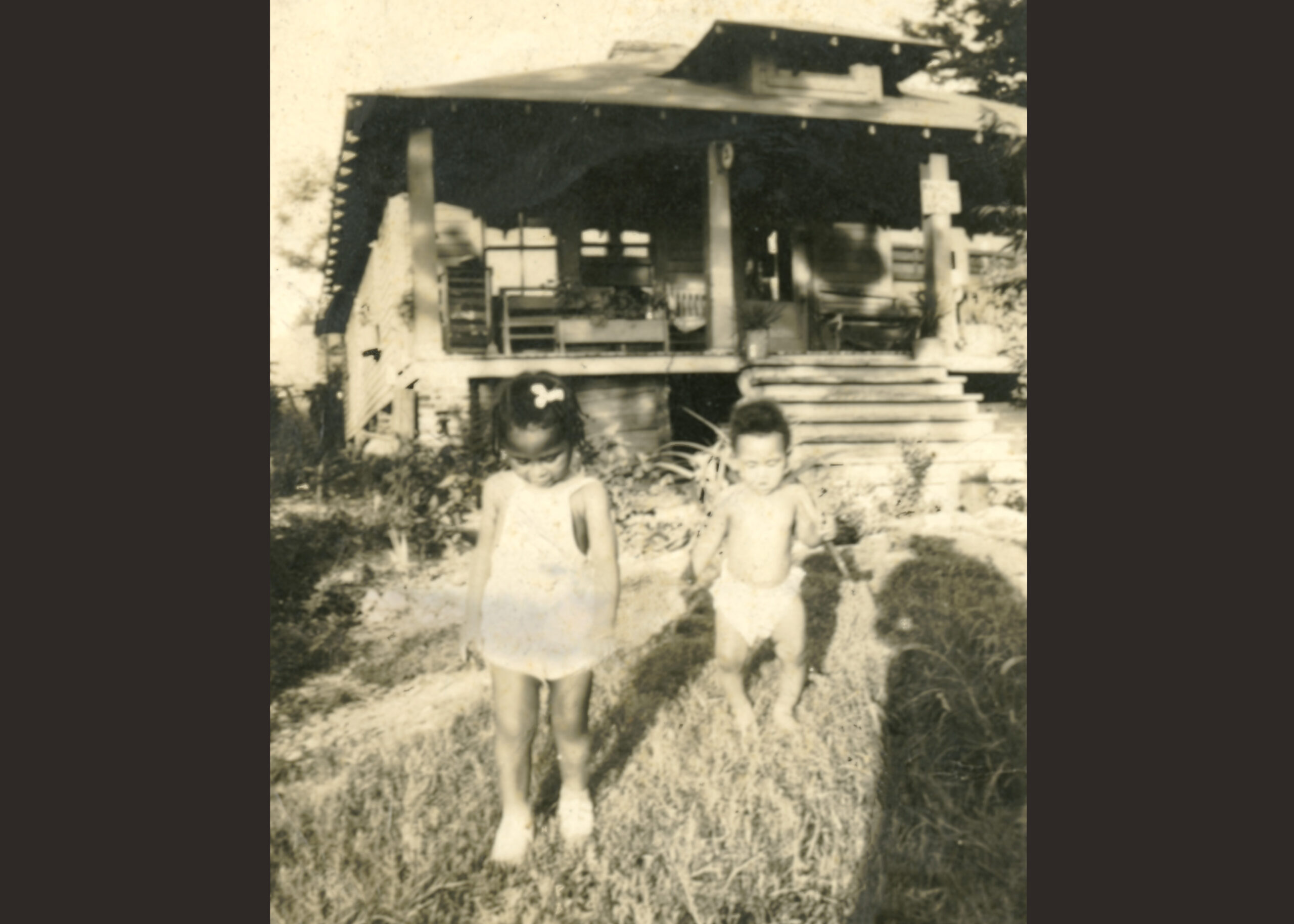
Unidentified children in front of William and Ida Bagley’s home in Bagley Park, circa 1940. Courtesy of Elon Butts Osby

Bagley Family Profile
Stoney Point Cemetery is the only remaining trace of the local Black church and school where William Bagley once taught in Forsyth County. He and his wife, Ida Julian Bagley, owned 60 acres of land in 1912-a remarkable achievement for an African American family in the Jim Crow South.
However, 1912 was also a year of terror for Black families in Forsyth. As racial violence escalated, the Bagley family was forced to flee. Family stories recount their escape by wagon, with Elon Osby’s mother, then a toddler, bundled up for the journey. By 1920, the Bagleys had found refuge in Buckhead, joining an established Black community in Macedonia Park.
In Buckhead, William Bagley bought and developed land, subdividing the land into lots, laying out streets and selling and renting homes. The neighborhood flourished and became known as Bagley Park, with William serving as its unofficial mayor.
Despite the communities’ efforts, Bagley Park faced new challenges in the late 1940s. Complaints from the predominantly white Garden Hills community led Fulton County to use eminent domain to seize the neighborhood. It was demolished to create a public park, initially named Bagley Park but later renamed Frankie Allen Park in 1980, against the wishes of the Bagley family.
Elon Osby, raised in the home her parents bought after being displaced from Bagley Park, carried forward her family’s legacy. She recovered the original Bagley Park sign when the park was renamed and championed efforts to correct improper taxation of the cemetery portion of the park. When a developer tried to relocate Mt. Olive Cemetery, Osby, alongside the Buckhead Heritage Society, successfully sued to protect it. The Buckhead Heritage Society became the official caretaker of the cemetery.
Osby continued to fight for her family’s legacy. Her efforts culminated in 2022 when the city of Atlanta unanimously voted to restore the park’s original name to Historic Bagley Park. This victory ensured that the Bagley family’s contributions would be honored and remembered.
The journey of the Bagley family from Forsyth to Buckhead is a story of resilience and leadership. Their ability to overcome adversity and their commitment to community development highlight their profound impact on Atlanta’s history.